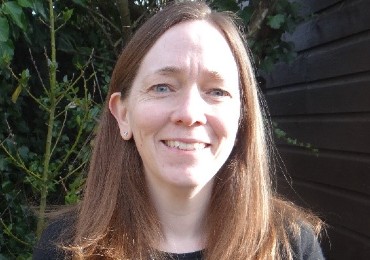Mirrors and reflections
How many times do you look in the mirror? What do you see? How closely do you look? I suspect some days we are so busy we don’t even look in a mirror! Why do we look in the mirror – is it to appreciate the way we look, or to look at the faults that need improving to look our best? Do you look in the mirror and remember how you used to look, or what you want to do, to look differently in the future? It is the same with reflection – and indeed probably where the analogy first came from. Reflection is a crucial part of personal and professional development for us as academics, as well as our students. If we never look in the mirror, how can we see what we have/are doing well and what needs improving for the future?

Avoiding the blind spot
Most people will have their preferred reflective tools to use – but always using the same tools can result in “blind spots” and missing elements that need attention. There is a range of portfolio tools available to help personal and professional development, and selections from each style should be considered to ensure a 360 degree view of yourself. If you only ever use the same mirror and look at yourself in the same way, you will only ever get the same reflection. Just as when looking in the mirror – it is important to stop and take the time to take a closer look. Sometimes something that looks good on the surface – with a closer look has blemishes and areas that need attention.
A reflective mind set
Reflection does not come naturally to everybody, but it plays a crucial role within employability. Students need to be encouraged to reflect upon their own perceptions of their employability, and supported to reflect on the links between what they learn from the academic curriculum provision and their wider life and work experiences, to truly maximise the potential of their individual, personal and professional development, and employability journey. A reflective mind set supports individual life long and life wide employability
An individual approach
Frameworks have been incredibly useful to guide my employability work to date. Reflection and articulation are included in the most recent Advance HE employability framework. However, I would suggest that reflection should be at the core, as the key to maximising authentic individualised student success. Employability should not be driven by institutional metrics but more by adopting an individualised approach, where students take ownership of their employability. Reflection supports self-awareness which are key attributes that employers are looking for in graduates. Self-awareness is key to individuals realising the potential of their own individual employability not only for themselves, but wider society. If students know who they are, what they want and have to offer for their own employability and contribution to the wider society, the metrics will look after themselves!
Portfolios
For health related disciplines, reflection and building portfolio evidence is a statutory requirement for professional registration. Building portfolios to evidence reflections and learning, can sometimes feel like a tick box exercise for our students. I can almost hear the groans (even virtually!) when I talk about reflections and building portfolio evidence for our student’s employability! But portfolios play an important part of bringing together and evidencing learning journeys in a structured format. In generating the evidence, it provides a great opportunity to rehearse examples of learning and experiences, that are so crucial to be able to draw upon during job applications and interviews.
Curriculum learning – what, why and how?
The curriculum and respective assessments can help students to know what they have learned. However, it is also crucial to understand why they have learned what they have learned, to make the theory practice link explicit. Also, reflecting on how they have learned what they have learned, to take forward to future situations. The reflection of what, why and how of learning, helps to develop a richer and deeper metacognition of learning. We cannot just “deliver learning” to students – their self-reflection needs to be at the heart of the learning process for them to translate that knowledge into useful currency for their future. As academics we need to reflect on our own role in this reflective learning process, to ascertain whether we support student reflection sufficiently, to maximise the potential of their individual learning experiences.
Employability
Reflection commonly focuses on past events, but reflection in action and in preparation for events and experiences is a crucial part of the self-awareness aspect of employability, mentioned earlier. Entrepreneurial spirit is at the centre of employability, with individuals seeking out change, facilitated by proactive reflection. The Advance HE enterprise and entrepreneurship education framework requires individuals to be self-aware but this cannot be “done to” students, and has to be nurtured and supported to reflect and respond, and for the links to employability to be made explicit.
Time for reflection
How well are we preparing students to reflect on their past, present and future selves, to fulfil their individual student success potential for their personal and professional development and employability? How many mirrors are we offering students to support their reflection during their studies to maximise their life wide and life-long learning?
Dr Lisa Taylor
Lisa Taylor is a Senior Fellow and Associate Professor of Occupational Therapy in the School of Health Sciences and Associate Dean for Employability for the Faculty of Medicine and Health Sciences, at the University of East Anglia, UK. Lisa is passionate about employability and learning innovation and publishes and presents extensively.
